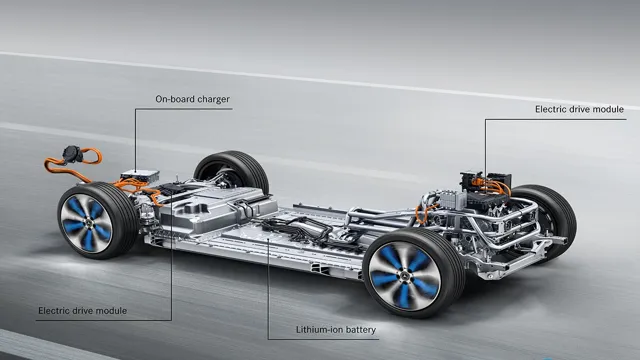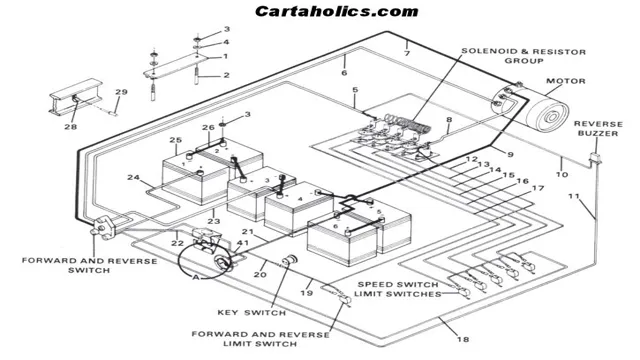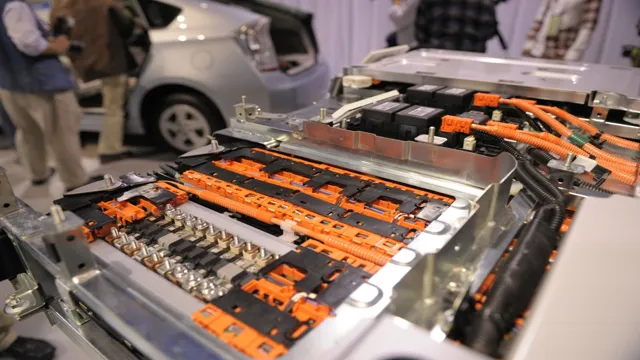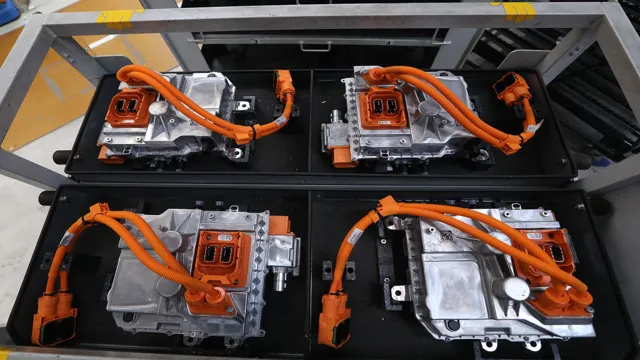The Power of Electric Car Battery Amp Hours: How Much Juice Does Your EV Really Have?
Electric cars are increasingly becoming popular as people seek to reduce their carbon footprint. To run efficiently, electric vehicles need a good battery, and the battery’s capacity is measured in ampere-hours or Ah. However, understanding electric car battery amp hours can be a bit complex, especially if you are not familiar with the technical terms.
What does it mean for a battery to have 60 Ah, for instance? What is the relation to the driving range? In this blog, we will shed more light on electric car battery ampere-hours, making it easy for you to make informed decisions when buying or owning an electric vehicle. Get ready to delve into the basics and learn all you need to know to understand electric car battery ampere-hours thoroughly.
What are Amp Hours?
Electric car battery amp hours refer to the amount of electrical energy stored in the battery. It is an essential parameter to understand the performance and range of an electric car. Essentially, it is the measure of how long a battery can supply a certain amount of current without recharging.
Amp hours are determined by multiplying the current draw by the time taken to discharge the battery completely. For instance, if a battery can supply 10 amps for 5 hours, its amp-hour rating would be 50Ah. A higher amp-hour rating means the battery can provide power for a more extended period, thereby increasing your electric car’s range.
Modern electric cars come with different battery sizes, and understanding the amp-hour rating of your battery is crucial in optimizing your driving range and ensuring peak performance of your vehicle.
Explaining Electric Car Batteries
When talking about electric car batteries, one of the most important terms to understand is “amp hours.” Amp hours (Ah) represent the energy capacity a battery can hold and how long it can power a device. In simpler terms, it’s a way to measure how much energy a battery can supply over a certain period of time.
For example, a 10Ah battery will supply 10 amps of current for one hour, 5 amps of current for two hours, and so on. Essentially, the higher the Ah rating, the longer the battery will last. When shopping for electric cars, Ah is an essential factor to consider, as it determines the car’s range and how often it needs to be charged.
Understanding Amp hours is crucial in deciding which electric vehicle might be the best fit for your lifestyle, considering your daily commutes and other factors. So, keep an eye on the Ah rating when comparing electric cars, and you’ll undoubtedly make an informed decision.

Understanding Amp Hours and Battery Capacity
Amp Hours If you’ve ever searched for a battery, you’ve probably come across the term “amp hours.” But what exactly are amp hours, and why are they important? Simply put, amp hours refer to the amount of energy that a battery can provide over a certain length of time. Think of it like the gas tank in your car.
Just as your car can travel a certain distance on a full tank of gas, a battery can power a device for a certain amount of time based on its amp hour rating. For example, a battery with a rating of 10 amp hours can provide 10 amps of energy for one hour, or 5 amps of energy for two hours, and so on. Understanding the concept of amp hours is important when choosing a battery to power your devices, as it can help you determine how long your device will run before needing a recharge.
How Many Amp Hours Do Electric Cars Need?
When it comes to electric car battery amp hours, it really depends on the car’s design, size, and range. Typically, electric cars have batteries ranging from 30 kWh to 100 kWh. Some vehicles, like the Tesla Model S, have batteries with 100 kWh capacity, which allows for a range of up to 402 miles on a single charge.
On the other hand, smaller electric cars such as the Nissan Leaf have batteries with a capacity of 30 kWh, providing a range of around 110 miles. Generally, the more amp hours your vehicle has, the longer the range it can cover without the need for a recharge. However, it is important to note that battery capacity is just one of many factors that contribute to an electric car’s overall performance.
Other important factors include the car’s energy efficiency, charging options, and driving habits.
Factors that Affect Battery Capacity
When it comes to how many amp hours electric cars need, there is no one-size-fits-all answer. The battery capacity required depends on several factors such as the car’s size and weight, driving conditions, and range requirements. Larger and heavier vehicles will need a higher capacity battery to move them, while hilly or high-speed terrains will drain the battery faster.
Moreover, if you have a longer commute or frequently travel for long distances, you will require a larger battery to provide enough power. Additionally, the battery’s storage capacity may degrade over time, which means you may need a larger one than you would get when it’s brand new. In general, most electric cars require batteries with amp hour ratings between 30 and 100, depending on their size and purpose.
Whether you’re driving a small, city car or a long-range Tesla, the battery’s amp-hour capacity is a vital factor to consider.
Calculating the Required Amp Hours for Your Electric Car
When it comes to electric cars, one important factor to consider is how many amp hours are required to power the vehicle. This can vary based on the type of car and the distance that needs to be traveled. For example, a smaller electric car may only require 50-60 amp hours for a full charge, while a larger SUV may need 100-120 amp hours.
Calculating the required amp hours can also depend on the battery voltage and capacity. It’s important to ensure that the electric car has enough amp hours to travel the needed distance without running out of power. By taking the time to calculate and plan for the necessary amp hours, electric car owners can have a smoother and more efficient driving experience.
How Long Do Electric Car Batteries Last?
One of the most critical factors for electric car buyers is the longevity of the battery. It’s a common question, and finding a definitive answer is a challenge because it depends on several factors. The electric car battery’s capacity is measured in ampere-hours (Ah), and the higher the Ah, the longer the battery will last.
However, it’s not just about the size of the battery. Environmental factors such as temperature can impact the battery’s performance, as can the way the car is driven. Generally, electric car batteries can last anywhere from 8 to 20 years, or around 100,000 miles, before needing to be replaced.
Of course, this can vary based on usage, and a poorly maintained battery will have a shorter lifespan – just like any other car part. It’s important to think of an electric car battery like the engine of a traditional car. It needs care and maintenance to perform at its best and to last as long as possible.
Factors that Affect Battery Life
Electric car batteries have a finite lifespan that largely depends on various factors. These include the battery chemistry, usage patterns, driving habits, and environmental factors. Lithium-ion batteries, which are the most common type used in electric cars, are designed to last for about 100,000 miles or more.
However, extreme temperatures, high mileage, and fast charging can all shorten the battery’s lifespan. When it comes to usage patterns, driving at high speeds, using air-conditioning, and heavy acceleration can all drain the battery’s power more quickly. On the other hand, gentle driving, smooth acceleration, and careful use of electronics can help extend the battery life.
Additionally, harsh weather conditions, such as cold temperatures, can adversely affect the battery’s performance. Overall, the lifespan of an electric car battery can vary widely depending on several factors. Nevertheless, proper charging, regular maintenance, and good driving habits can help ensure that the battery lasts as long as possible.
Maximizing the Lifespan of Your Electric Car Battery
Electric car batteries have come a long way in recent years, but one of the biggest questions that people have is how long they can expect their battery to last. While there is no one answer to this question, it generally depends on factors like the quality of the battery, how often it’s used, and the conditions in which it’s used. Additionally, some electric car manufacturers offer warranties on their batteries that can range from 8 to 10 years or more, but these warranties often come with certain restrictions and terms.
To maximize the lifespan of your electric car battery, there are a few things that you can do, such as avoiding frequent fast charging, keeping the battery at a moderate temperature, and driving your car regularly. By paying attention to these factors and taking good care of your battery, you can extend its lifespan and get the most out of your investment.
Conclusion: Amp Hours and Electric Car Battery Performance
In conclusion, electric car battery amp hours are like the fuel in a gas tank – the more you have, the farther you can go. However, unlike gas tanks, amp hours don’t just disappear when you use them up. They can be recharged again and again, making electric vehicles a cleaner and more sustainable option for transportation.
So, remember, amp hours may be little units of measurement, but the impact they have on our environment and the future of mobility is certainly not small!”
FAQs
What is the significance of amp hours in electric car batteries?
Amp hours is the unit used to measure the capacity of an electric car battery. It represents the amount of current that the battery can supply for one hour.
How does the amp hour rating affect the range of electric cars?
The higher the amp hour rating of an electric car battery, the greater the range of the car. This is because a higher capacity battery can store more energy, allowing the car to travel further.
Can an electric car with a lower amp hour rating be upgraded to a higher capacity battery?
Yes, electric cars can be upgraded to higher capacity batteries. However, this may void the vehicle’s warranty and may require expensive modifications to accommodate the larger battery.
How long does it take to fully charge an electric car battery with a certain amp hour rating?
The time it takes to charge an electric car battery depends on the amp hour rating of the battery and the charging infrastructure used. Higher amp hour batteries will take longer to charge, and slower charging infrastructure will take longer to fully charge the battery.




